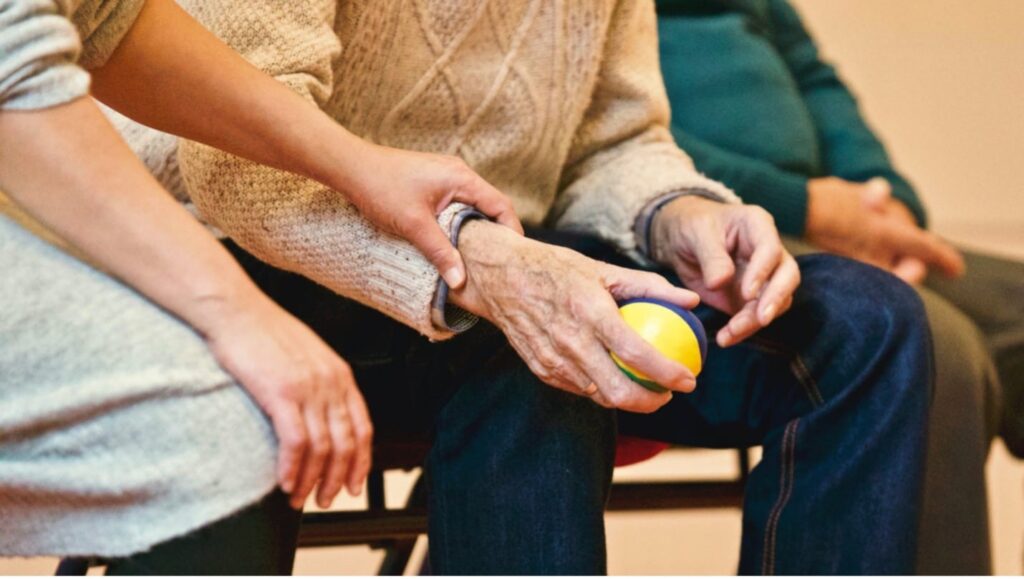Are you concerned about Nursing Home Abuse? Nursing homes are facilities designed to provide care to people who require additional care and can’t live independently because of age or health-related reasons. Unfortunately, they are not always the place of paradise you are made to believe.
While a wide variety of patients come to nursing homes for various reasons, they are sometimes not given the care and treatment they deserve. Even more unfortunate is that sometimes, not even humane living conditions are provided. Although rare, dealing with nursing home abuse is challenging in modern society.
7 Types of Nursing Home Abuse
According to statistics from the World Health Organization, 1 out of every six people over 60 has been subjected to some form of abuse even during 2022. These events occur primarily in community settings such as nursing homes. WHO also revealed that every 2 in 3 staff members conceded that they’d committed abuse towards the people under their care. In total, there are approximately 5 million cases of elder abuse registered every year.
These stats are alarming. The issue at hand is substantial even in the modern era of today. Here are some of the leading types of nursing home abuse that occur:
1. Sexual assault and harassment
One of the last forms of abuse that you can associate with happening to an older person is sadly a common occurrence these days. Sexual abuse or harassment includes groping, touching, or making sexual advances without consent. Staff at nursing homes can conduct these activities, and they often target people with disabilities or those unable to consent. As these cases are common, families must know how to report abuse in a nursing home.
Of the many nursing home abuse types, unwanted sexual advances are amongst the most uncomfortable. Most commonly, female residents of nursing facilities complain that male staff members subject them to sexual abuse. Unless they can defend themselves, the offenders get away with it. Three staff members of a nursing home in Florida were even protected by their management as no action was initiated against them even after repeated complaints. The state had to remove the institution from taking in new patients unless the abusive staff was terminated.
2. Being neglected or abandoned
Abandonment is another type of nursing home abuse that residents and their family members have reported. In some families, children and guardians abandon their elders at a nursing home. Although this is also neglect on the part of the family, abandonment in the nursing home means a caregiver abandoning their responsibilities altogether. There have been numerous reports of staff members leaving elders in nursing homes and kicking them out.
A 2020 case reported by the New York Times detailed one such incident. Staff at a nursing home in California subjected an elderly patient with dementia to this type of abuse. They took it upon themselves to take the patient and drop them at a halfway house in the middle of nowhere. The family had no information about this action. The older person was found roaming the streets alone in a dazed condition.
Family members, in particular, need to be aware of where they can find help against nursing home abuse so that proper action can be taken against culprits. Many of these nursing home abuse types fall under criminal jurisdictions. The court can award damages to the resident and their family while charging staff at nursing homes for misconduct.
3. Emotional and mental torture
Beyond 60, human beings enter a sensitive age where their mental and emotional state alters drastically. The feeling and expression of emotions significantly differ from what middle-aged people experience. Most of the time, the level of response is considerably higher, with even the most minor thing being felt by them intensely. Unfortunately, despite this knowledge, nursing home staff members have been subjecting residents to emotional and mental torture.
Sadly, emotional abuse is the most common type of nursing home abuse reported. Another report from the World Health Organization on abuse of the elderly highlighted that more than 30% of all nursing facility staff has admitted to subjecting residents to mental and emotional abuse. A troubling matter indeed! Threatening, verbal abuse, and other actions that impact the psychological well-being of a resident fall under this category.
Specifically, making or acting upon threats, abandoning residents within the facility, insulting them in any manner, shape, or form, and controlling an older adult’s activities against their will can all be considered emotional abuse. These nursing home abuse types can make residents irritable, worsen any pre-existing mental health conditions, and even lead them to inflict harm on themselves or others.
4. Ignoring the fundamental rights and necessities of residents
Residents of nursing homes are still human beings and are entitled to basic human rights. Nursing homes charge family members for the care they administer, which means they are obliged to provide a certain standard of services to all residents. However, this is not always the case.
Similar to abandonment and emotional abuse, ignoring the necessities and rights of a nursing home resident is also a form of cruelty. And while many nursing homes go above and beyond to provide care to the residents, some forego their responsibilities entirely. Besides the right to food, water, proper clothing, and clean accommodation, elderly patients also need access to medical facilities. Unfortunately, there have been reports of nursing home staff neglecting these rights and leaving residents at the mercy of nature.
This abuse can also be unintentional if the nursing home is understaffed. Still, it counts as abuse toward the residents. Family members must be aware of the care given to their elderly at the facility. The family should also know where to report and how to act against any abuse their loved one may suffer at the nursing home.
5. Misuse of older adults and their guardian’s finances
Stealing from elderly residents or their family members and removing their belongings are all actions of financial mistreatment. Nursing home staff can also exploit the residents in many ways to get monetary favors from them. This is considered under the same classification of abuse.
Common financial exploitation that residents can suffer at the hands of nursing home staff includes theft of financial records, bank statements, cash, valuables, and credit cards, restricting residents from accessing their financial assets, and misusing a power of attorney to alter residents’ wills. These are all punishable offenses with dire consequences for the offenders.
6. Physical trauma and abuse
A 2020 study by the World Health Organization revealed that 9% of the staff surveyed by them admitted to some form of physical abuse. Furthermore, these people confessed that their willful actions resulted in bodily injuries and harm caused to the residents. Over 60, even sexual and emotional abuse can physically damage the residents, but those fall under their respective categories.
Physical abuse includes intentionally punching or kicking a resident, being violent with them during routine tasks like changing clothes or going to the washroom, restraining residents with tape, rope, or straps, and pushing or shoving them even slightly. In addition, since most residents are old and vulnerable to bruises and broken bones and given their age, the recovery mechanisms are not as strong as they used to be. As a result, injuries can take much longer to heal, with broken bones sometimes not healing.
7. Self-neglect
Self-neglect means that older adults are not taking care of themselves. This is primarily due to their inability to do so and the fact that they might live alone in their home. Technically, this is not a form of nursing home abuse when the person is at their home or a family member’s place. However, it can become a form of nursing facility abuse when self-neglect happens within the institution’s premises.
For clarity, an elderly resident neglecting their meals, medications, and healthcare while at a nursing home can translate into abuse as the responsibility here falls on the staff at the institution. This abuse form is tricky to understand and determine, especially since deciding self-neglect can be challenging. Nonetheless, self-neglect inside a nursing home falls under the pretense of abuse on their part.
Conclusion on Types of Nursing Home Abuse
There are various nursing home abuse types. Each of these can considerably impact a resident’s physical and emotional well-being. Whether it is mental, physical, or financial abuse or ignoring the fundamental rights of an older adult at a nursing home, each criminal offense can be taken before the court. Family members must be aware of their duties and the tools and resources available to take action against the abusers.




